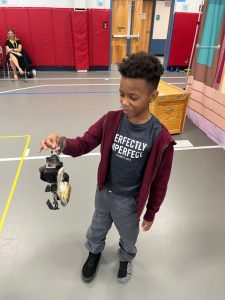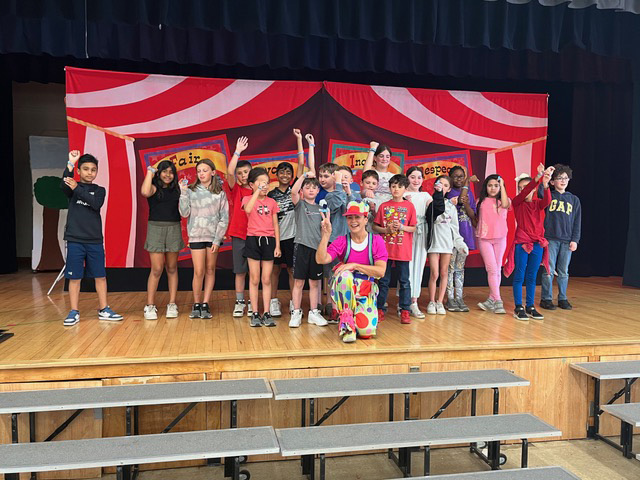
Working to perfect an assembly show is an ongoing process, sometimes of trial and error to discover what works best for the performer and for the favorable outcome of the enrichment program. Performers can learn from those who have come before us and have achieved even greater success.

There is much to learn from those who have mastered their craft and captivated audiences around the world. One such performer is Derren Brown, a well-known stage performer and British television personality known for his amazing mind reading skills and magic tricks that leave audiences in awe. In his recently published book, Notes from a Fellow Traveler, Brown shares his insights on dealing with uncooperative volunteers, a challenge many school assembly show performers can relate to.
As a school assembly show performer for 30 plus years, I have often dealt with uncooperative volunteers. These volunteers, usually school children under the age of 12, bring their own personalities and idiosyncrasies to the stage. While most children are excited and eager to participate, it happens that some may act out or refuse to carry out even the simplest task requested by the school show performer.

Brown’s method of dealing with such situations is as simple as it is fascinating. He suggests acknowledging the volunteer’s reluctance or uncooperativeness but not directly. He proposes to subtly appeal to the volunteer’s deeper desire to recognzied by his peers. By saying something like, “Wow, I love your excitement. I can tell you are a person who likes to get things done. So I know it will be easy for you to follow these simple instructions and show everyone what I can already see in you.” By shifting focus away from the volunteer’s uncooperativeness, the performer can defuse the situation and encourage the volunteer to cooperate positively.
In an instance like this perhaps this approach could be quite effective and worth considering. It also recognizes that the disruptive behavior may be due to the volunteer’s uncomfortableness of being on stage or agitation and not an intentional rebellion. By taking a step back and re-evaluating the situation, a school show performer can offer a compliment that will boost the volunteer’s morale and direct their energy toward a positive outcome. This not only helps maintain the flow of the performance, but also makes the volunteer feel valued and included.

In any school performance, where the goal is to engage, educate and entertain young people, it is always important to refine our techniques. Brown’s suggestion is a valuable lesson in dealing with uncooperative volunteers and reminds us to approach such situations with empathy, understanding and the ability to see beyond the superficial behavior. By creating an environment that fosters positivity and encouragement, we can turn potentially disruptive moments into opportunities for growth and connection.
To learn more about our 12 engaging school assembly shows that always make the student volunteers the stars, please visit the link below. We would love to bring one of our tried and true shows to your school to inspire and engage young people through the power of a theatrical and magical performance.